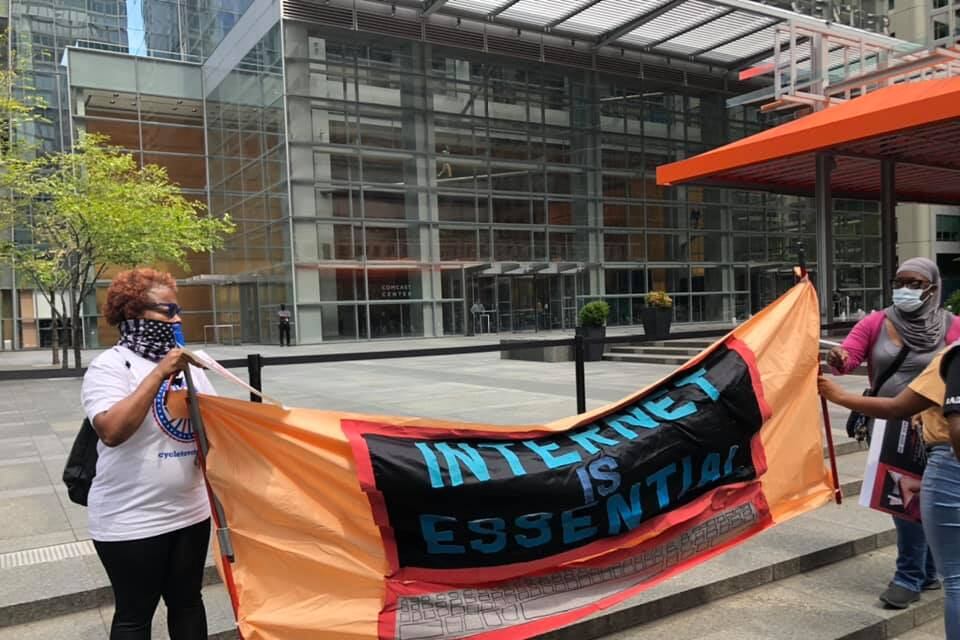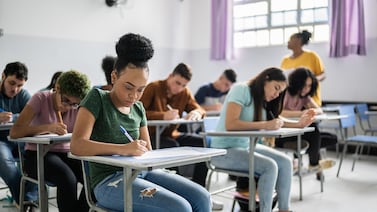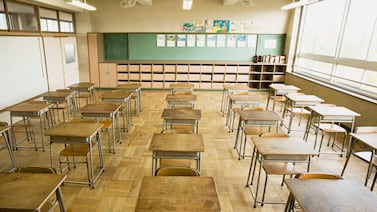This story has been updated with comment from Comcast.
Families of K-12 students who lack broadband access can call 211 for information about how to get online for the coming year through PHLConnectED, the public-private project designed to make low-cost internet more widely available across Philadelphia.
The hotline, announced this week, is being operated by United Way of Greater Philadelphia and Southern New Jersey and will be available 24/7 with information in 150 languages. Callers will be able to get information including referrals to resources and a phone number for families to call to set up service if they qualify.
“The pandemic has only underscored what we already knew to be true — digital access is essential for education and work opportunities,” said Bill Golderer, president and CEO of United Way.
But just a day after the hotline was announced, groups that advocate for the poor, including the Movement Alliance Project, renewed their demand that internet service providers and policymakers do more to guarantee universal, free access as long as schooling remains online. And they called for the service providers to foot more of the bill.
In Philadelphia, school will be online only at least through mid-November. And as of last week, the school district had identified 1,931 families who said they did not currently have service and need help connecting, Superintendent William Hite told the Board of Education.
PHLConnectED, announced earlier this month, is a two-year, $17 million joint project of the city, school district and internet service providers to expand broadband access for families and make it free or low-cost for two years to those who qualify. Officials estimated it would reach 35,000 families who now lack internet service.
It’s funded through a combination of philanthropic and public dollars, and the goal is to raise enough money to extend it beyond two years. It will include $7.2 million from the city for wired internet access, $5.1 million for hotspots, and $1.7 million for a multilingual cadre of “digital navigators” who can help families with training and technical support.
Any Philadelphia resident with a student in the district or charter schools who currently doesn’t have service, who only have mobile internet service, or is homeless or “housing insecure” is eligible. There is no income threshold, said a Comcast spokesman.
Access will be free for two years to families who qualify through Comcast’s Internet Essentials program for low-income households, which normally costs $10 a month. Mobile hotspots for those who are “housing insecure” will be provided by T-Mobile.
The district is calling more than 40,000 families “to make sure they are aware of the service,” said spokeswoman Monica Lewis. “We are hopeful that as many families as possible take advantage of this program so their children can get the resources they need to successfully engage in digital learning.”
In a statement, Mayor Jim Kenney said the city was “thrilled” to launch the hotline, and called PHLConnectED “a critical step in bridging the digital divide in Philadelphia.”
Advocates for low-income families say that PHLConnectED is a meaningful step, but far from enough. They’re calling on Comcast to increase speeds for Internet Essentials, lengthen its free-trial period, and open up residential hotspots for public use. They also want the program opened up to some district employees, including paraprofessionals, who may not be able to afford the service.
Wednesday was a “day of action,” with rallies in seven cities, including Philadelphia, calling on internet service providers to do more. About 20 people marched outside Comcast headquarters Wednesday afternoon, according to rally organizer Zach Wright.
City Council member Helen Gym and other advocates for low-income residents say that Comcast and other providers can afford to fund the program themselves and should do so, especially with the city and district budgets strained by the pandemic.
Wright said it’s “unacceptable” that schools are still having to pay something out of pocket for their students’ access.
“Comcast receives huge tax breaks from both the city and state,” Wright said. “They should step up to the plate willingly. If they don’t, they should pay their fair share, and we should use that money to create a municipal public Wi-Fi.”
Comcast’s two headquarters buildings, the tallest in the skyline, were constructed using a city tax abatement program that forgives taxes for 10 years for new development.
The company and city officials have said the advocates’ call for opening residential hotspots for public use is technically problematic and would slow service for paying customers. Comcast has also said that its free offers for Internet Essentials and the opening of commercial hotspots in the city provide means for online access for just about everyone in the city.
Late Thursday, a spokesman issued a statement, saying that solving a problem as “vast and complex” as the digital divide requires collaboration with the school district, elected officials, nonprofit community partners, and other private-sector companies.”







